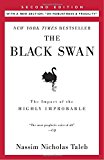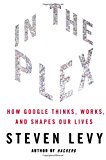 Four years ago, way back in 2007 I wrote about a Clayton Christensen article “Finding the Right Job for Your Product.” Clayton Christensen is of course famous for his groundbreaking book The Innovator’s Dilemma: The Revolutionary Book that Will Change the Way You Do Business
Four years ago, way back in 2007 I wrote about a Clayton Christensen article “Finding the Right Job for Your Product.” Clayton Christensen is of course famous for his groundbreaking book The Innovator’s Dilemma: The Revolutionary Book that Will Change the Way You Do Business![]() .
.
Way back then in 2007 the average CMO lasted 23.5 months, just under 2 years and 75% of all new products or services introduced by established companies failed. Wow, talk about a hard job. I don’t have any updated facts but I don’t think either of those stats have improved any.
There has been a lot of bottom up change happening throughout marketing. One huge change that’s been felt at the lower levels and with only a few exceptions has permeated the C suite and that’s of skill-sets. Social media capabilities have been relegated to interns, contract labor and agencies. Very few CMO’s have had to get their hands dirty yet. But that’s starting to change.
In Ad Age there’s an article that summarizes some research by a head hunting firm, uh an executive search firm. Here are my key tweetable take-a-ways from the article:
- The old “CPG academy” model is evolving to a “hybrid marketer.”
- The emphasis is shifting toward customer insight and relationship building.
- The CMO’s ability to drive measurable demand generation is critical and now more complex than ever.
- Demand for hands-on/operational marketers who have the ability to move at a rapid pace & stay in front of the customers is rising.
- The CMO must be seen as an authentic advocate for customers and, conversely, as a listening ear to customers who are advocates.
And my favorite point exceeds the 140 character tweet-limit but it’s the key IMO:
Digital-to-consumer continues to grow in importance across all customer demographics, so understanding how to forge both one-on-one and broader community ties with core consumers via digital media is critical.
But why are these skills so important? Stowe Boyd points to some IBM research done last year that shows that “financial outperformers are 57 percent more likely than underperformers to use collaborative and social networking tools to enable global teams to work more effectively together.”
Only two years ago I wrote about the digital skills marketers must have. And yes, I was mostly talking about social media. And again I reiterated that social media *experience* is a must have.
So yes, the new CMO has to be digitally savvy, but it’s more than that. The new CMO has to be Social. And I don’t just mean social media (that’s part of it) but they need to be truly social. Not necessarily extroverted, but social.
So what do I mean by that?
The new Social CMO is going to be the one’s that are out talking to customers, not sitting in their office reading reports done by agencies.
The new Social CMO will be the one who takes the time to experiment with new emerging technologies. They may not be a social media power house but they will be very proficient.
The new Social CMO is engaged and curious. But this isn’t anything new. Going back to the Clayton Christensen article there’s a great story about the early days of Sony I’d like to end with.
“Sony Corp.’s legendary co-founder, Akio Morita, had a policy of never relying on quantitative data to guide new-product development as he lead the company between 1950 and 1980, because data doesn’t exist for new applications of technology. Instead he and his associates just watched what people were trying to do and tried to imagine how applying the company’s electronics miniaturization technology could make it easier and more affordable for more customers to do those jobs. Morita’s success rate for new products was much higher than the 25% success rate for products whose launch is guided by more quantitatively sophisticated market-research methods.”
Similar Posts:
- Marketing is broken because Marketers are lazy
- An MBA, The Enterprise and Change
- If Collaboration is the Killer App for Bussiness
# of Comments 4
# of Comments 9
# of Comments 9







Recent Comments